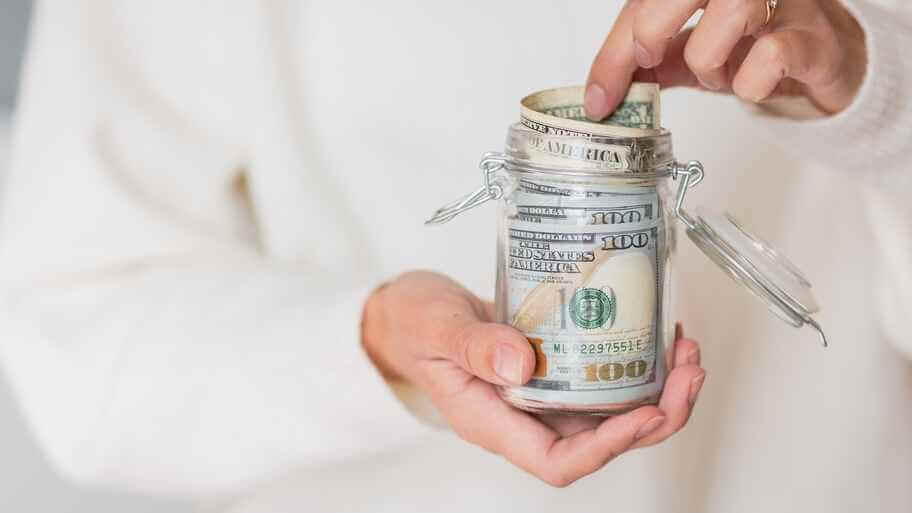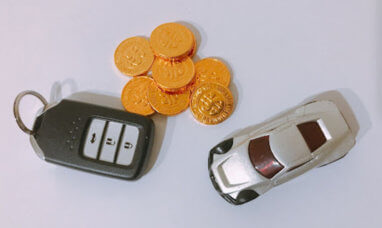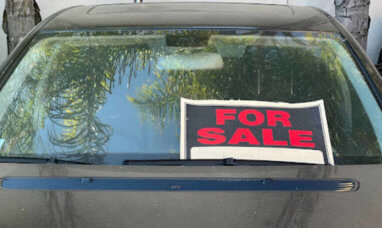One of the most common misconceptions about borrowing is that you need to have collateral. This is not true. There are many ways to get a loan with no collateral. One option is an unsecured personal loan from your bank or credit union. But, you may be wondering how unsecured personal loans work. Here’s what you need to know
Unsecured loans do not require any security for repayment. However, since they are riskier for the lender, they come with higher interest rates than secured loans like mortgages or auto loans.
Read on for more information about this type of financing and how it might work for you.
What Is an Unsecured Personal Loan?
An unsecured personal loan is just as it sounds—a loan that is not backed by any type of collateral.
On the other hand, a secured personal loan includes collateral such as your home or car. The property’s value is used to secure the loan. If you do not repay it in full, your assets can be sold by the lender in order to recover the outstanding debt. For example, they can repossess your car.
With an unsecured personal loan, though your assets do not serve as collateral, the lender can take other actions to collect what you owe if you don’t pay. For instance, they can garnish your wages or place a lien on your property.
Unsecured personal loans can be more flexible in many ways than secured loans. One significant advantage is that your property isn’t tied up, so you are free to do whatever you want with it.
Common Uses for Unsecured Personal Loans
Unsecured loans can be used for a variety of purposes, including funding college tuition, medical bills, home improvement projects, or even consolidating high-interest rate credit card debt into one payment at a lower rate.
Here are a few of the most common uses for unsecured personal loans:
Unsecured Personal Loans for Student Debt
Students can use an unsecured personal loan to help pay off student loans or other debts. Taking out a personal loan may be a good option if the interest rate is less than that of a credit card. This can save you a significant amount in interest in the long run.
Unsecured Personal Loans for the Unemployed
If you are unemployed and need some emergency funds to pay your bills and expenses until you find a job, you may consider taking out a personal loan.
Many lenders are hesitant to offer loans to those who have had trouble finding a job or will not be getting a paycheck in the near future. If you are unemployed and need some extra cash, ask your lender if you qualify for an unsecured personal loan with no income verification.
Unsecured Personal Loans for Those with a Bad Credit Score
Many people struggle with bad credit. If you have had trouble paying loans in the past and want to consolidate your debt, an unsecured personal loan may be a good option for you. You can use a personal loan to pay off credit card or other debt that charges higher interest rates.
How to Compare Unsecured Loans
Like all types of loans, there are pros and cons to unsecured personal loans. You should be sure that the benefits outweigh the risks before taking out a loan. To help you decide if a loan is right for your financial situation, consider these factors:
Loan Amount
Unsecured personal loans can offer a much higher loan amount than other types of financing. A typical credit card has an upper limit of around $15,000, while unsecured personal loans are available for much larger amounts. Before considering other options such as a home equity line of credit or a commercial business loan, you should see if you qualify for an unsecured personal loan with a higher ceiling.
Unpayable Balance
Some credit cards and other types of loans may offer a “grace period” that lets you pay only the minimum amount due each month or not give full payment for several months at a time. While this may seem convenient, it can lead to a considerable amount of interest.
Interest Rate
Interest rates on personal loans vary widely, and the best interest rate available will depend on your financial situation. If you have a good credit score (720 or higher) and don’t need to borrow very much money, you could qualify for an unsecured personal loan with a low interest rate.
How to Qualify for an Unsecured Loan
Many unsecured personal loans have similar qualifications, but some lenders will make exceptions for certain borrowers. Here are the basic requirements for most unsecured personal loans:
Age
Generally, you must be 18 or older to qualify for an unsecured personal loan. Both federal and state laws may apply, so check with your lender if you have any doubts about your qualifications.
Income
You must have a steady income from employment to qualify for an unsecured personal loan. If you work on commission or are paid by the hour, you may be able to get some financing if your lender thinks it is likely that you will receive a full paycheck in the near future.
If your entire income is made up of tips, you may be able to qualify for an unsecured personal loan. Some lenders will base their decision on how much income is reported to the IRS. Others will look at your credit history and see if it appears as if you have had steady employment in recent months.
Credit History
Your credit history is the most important factor in determining whether you can qualify for an unsecured personal loan and how much you will be able to borrow. Understandably, the lower your credit score, the more you will have to pay in interest and other fees. However, having a low credit score is not enough to disqualify you from an unsecured loan.
Unsecured Personal Loans for H1B Visa Holders
Can I get a personal loan on an H1B visa? If you were issued a work-related visa, you might be wondering how to get a personal loan with no credit check if your employer won’t verify your income. The good news is, many lenders will still consider providing an unsecured personal loan for H1B visa holders or those on other types of foreign visas.
Applying for an Unsecured Loan
Applying online is becoming an increasingly common way to apply for a loan. You can also apply in person at your local bank or even over the phone. However, if you already have an online account with your lender, it is often easier and more convenient to apply through that system.
Most lenders will require at least six months of recent bank statements and W-2 forms from you and your employer if you are taking out a personal loan. Your income is one of the most important factors in their decision to loan you money.
Unsecured Loan Alternatives
If you cannot qualify for a regular unsecured personal loan, there may be other options available to you that don’t require collateral. You should look into the following options:
-
-
- Peer-To-Peer Lending
- Credit Unions
- Community Loan Funds
- Loan Sharks
- Payday Loans
- Cash Advances on Your Credit Card
-
Final Thoughts
An unsecured loan is a great way to borrow money for almost any reason. You may have good credit but no collateral or you could be in between jobs and cannot afford to put anything up as security. Whatever the case may be, it pays to know your options before taking out a personal loan.
Make sure you are not being pressured into signing a loan agreement you do not understand, or that is not in your best interest. The more research you do and the better prepared you are, the easier it will be to handle your debt before payday arrives.
Featured Image: Twenty20






